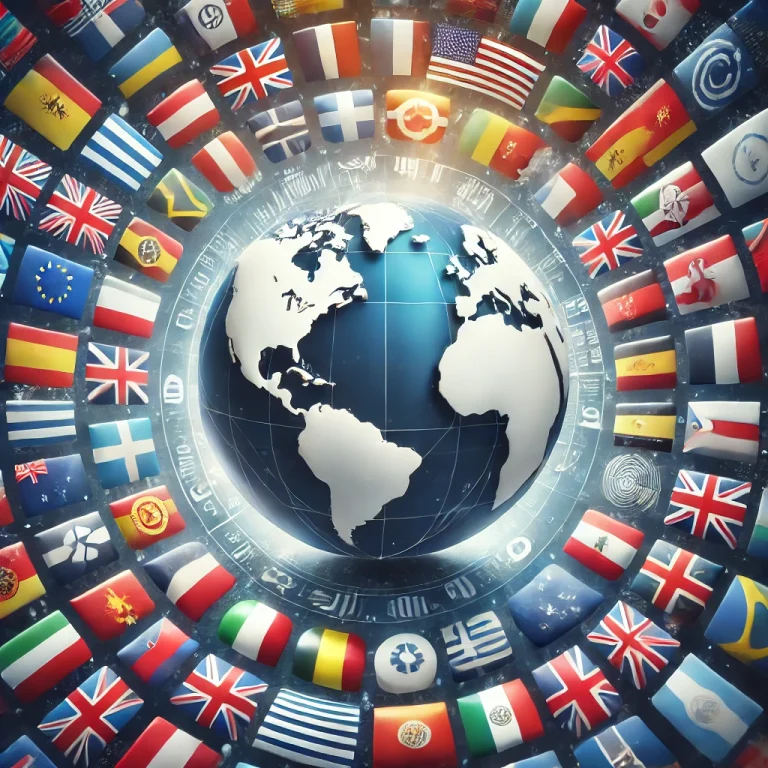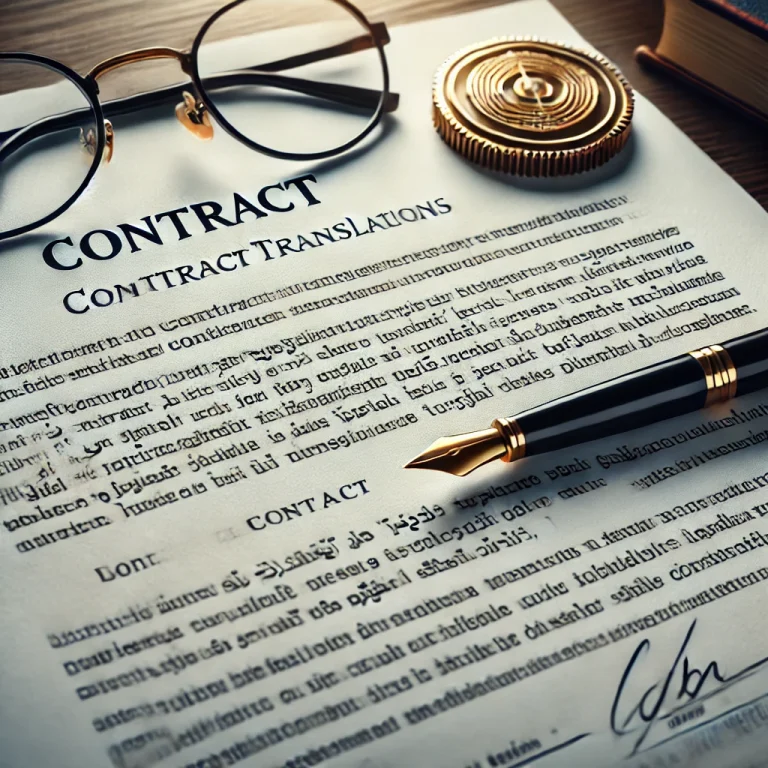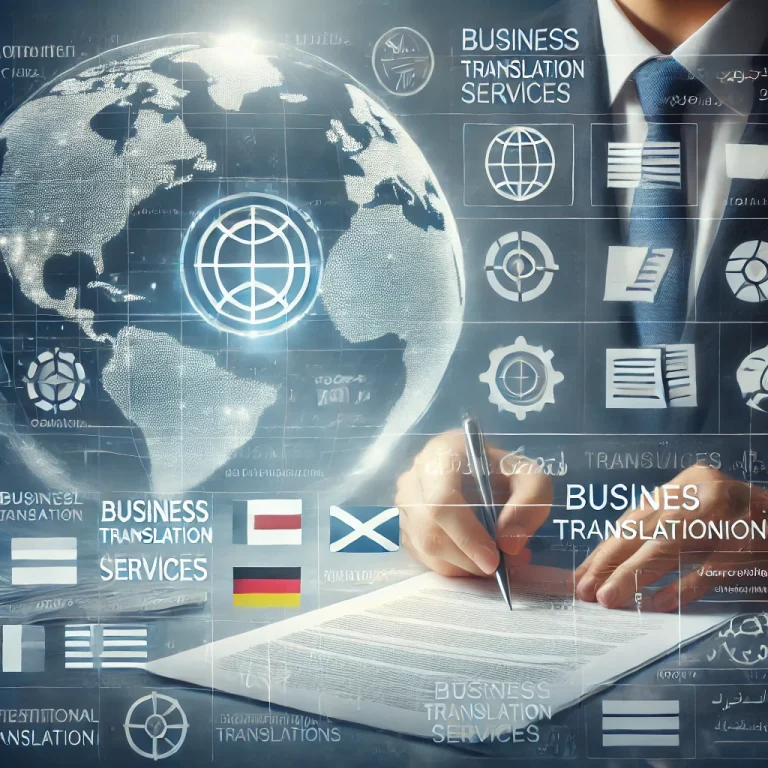In today’s global economy, businesses are expanding across borders, reaching new markets, and connecting with diverse audiences. One key factor that drives this expansion is business translation. Accurate and professional business translation services ensure that companies can effectively communicate with international clients, partners, and stakeholders, breaking down language barriers and increasing their global market reach. From legal contracts to marketing materials, translating business content into different languages opens the door to a world of opportunities.
In this article, we explore the importance of business translation, the various types of professional translation services available, and how your company can benefit from accurate and reliable translations. We’ll also discuss the role of contract translation, legal translation, and other critical business documents in building trust and ensuring compliance with international regulations.
Why Business Translation is Essential for Global Success
In today’s interconnected world, language should not be a barrier to business growth. Companies expanding into new markets face the challenge of communicating with foreign clients, suppliers, and governments. Here’s why business translation services are critical for your global success:
- Effective Communication: Business translation allows you to communicate clearly with international clients and partners, ensuring that your message is understood correctly.
- Legal Compliance: Proper translation of contracts, agreements, and legal documents helps you comply with the laws and regulations of the countries you operate in.
- Cultural Adaptation: Professional business translation services take into account cultural differences, ensuring that your content resonates with local audiences.
- Enhanced Credibility: Providing clients and stakeholders with professionally translated documents shows your commitment to accuracy and professionalism, increasing your credibility in the market.

Professional Translation Services: Meeting Business Needs
Not all translations are created equal. Different types of business content require different approaches to translation, depending on the industry, target audience, and document type. Here are some key types of professional translation services that your business may need:
Contract Translation: Contracts are the backbone of business relationships. Translating contracts into the language of your international partners ensures mutual understanding and legal compliance. A professional contract translator is well-versed in legal terminology and the intricacies of contract law in different jurisdictions.
Legal Translation: Legal documents, such as patents, court documents, and compliance paperwork, must be translated accurately to avoid misunderstandings or legal disputes. Certified legal translation services ensure that your documents are recognized by courts, government agencies, and international authorities.
Marketing Translation: Adapting marketing materials to different languages involves more than word-for-word translation. Marketing translation requires a deep understanding of cultural nuances to ensure your message appeals to local audiences.
Technical Translation: If you’re in a technical industry (IT, engineering, healthcare), your documents may include specialized terminology that needs accurate translation. Technical translators with industry expertise ensure that your manuals, product descriptions, and technical specifications are properly translated.

How Business Translation Expands Your Market Reach
Investing in professional business translation services is more than just a cost—it’s a strategic investment in your company’s growth. Here’s how it can help you expand into new markets:
Access to New Customers: By translating your website, product descriptions, and customer service materials into multiple languages, you can reach new customers who may not speak your original language. Studies show that people prefer to buy products and services in their native language.
Improved Customer Experience: Offering translated customer support materials, FAQs, and product guides shows that you value your international customers, improving their overall experience with your brand.
Building International Partnerships: Expanding into foreign markets often requires building relationships with international suppliers, investors, and distributors. Proper translation of contracts, emails, and business proposals ensures these partnerships are founded on clear communication and trust.

Contract Translation: The Cornerstone of International Business
Contracts are critical in international business as they formalize agreements and protect the interests of all parties involved. Contract translation ensures that these agreements are accurately communicated across languages, preventing misunderstandings and ensuring that both parties are on the same page.
Key benefits of contract translation include:
- Avoiding Legal Disputes: Mistranslations in contracts can lead to costly legal battles. Accurate translations protect your company from legal risks.
- Ensuring Compliance: Many countries require business contracts to be submitted in the local language for them to be legally binding.
- Fostering Trust: Accurate contract translations build trust with international partners by ensuring transparency and clarity.

Legal Translation for International Business Compliance
Whether it’s submitting documents to foreign governments or negotiating international deals, legal translation is vital for businesses operating globally. Legal translation ensures that your legal documents are recognized and enforceable in foreign jurisdictions.
Documents commonly requiring legal translation include:
- Patents and Intellectual Property Filings
- Court Documents and Litigation Papers
- Compliance Reports and Government Filings
- Corporate Bylaws and Articles of Incorporation
How to Choose the Right Business Translation Provider
Choosing the right business translation provider is critical to your success. Here’s what to look for:
- Industry Expertise: Ensure the provider has experience translating documents specific to your industry.
- Certified Translators: Always work with certified professionals who understand the legal and cultural implications of translation.
- Quality Assurance: Ask about the provider’s quality control processes, including proofreading and certification.
- Turnaround Time: Ensure that the translation service can meet your deadlines without compromising quality.
FAQs
What is business translation?
Business translation is the process of converting business-related documents into different languages to facilitate international communication and ensure legal compliance.
Why is business translation important for companies?
Business translation helps companies communicate effectively in global markets, avoid legal issues, and build trust with international clients and partners.
What types of documents require business translation?
Common documents include contracts, legal agreements, marketing materials, technical manuals, and corporate filings.
How does contract translation help businesses?
Contract translation ensures that business agreements are accurately translated, legally binding, and understood by all parties involved.
What is the role of legal translation in business?
Legal translation ensures that legal documents are correctly translated and recognized by courts, governments, and international regulatory bodies.
How can I choose the right business translation provider?
Look for providers with industry expertise, certified translators, quality assurance processes, and the ability to meet deadlines.
Conclusion: Unlock Global Opportunities with Business Translation
Business translation services are essential for companies looking to grow in the global marketplace. Whether you need contract translation, legal translation, or industry-specific documents translated, professional services ensure that your business communicates clearly and effectively across languages. By investing in quality translation services, you can expand your market reach, build trust with international partners, and stay compliant with global regulations.


